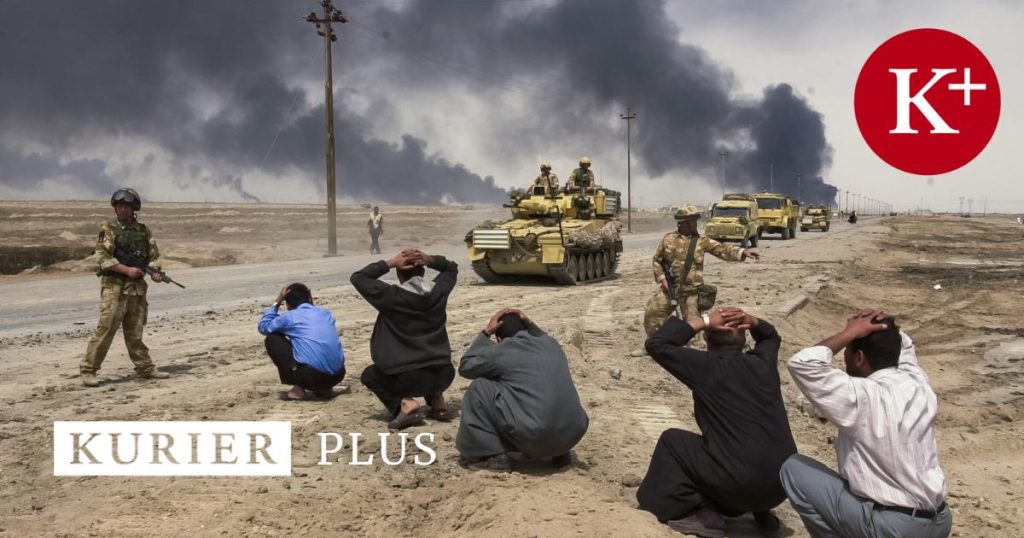
Twenty years ago, Washington began its war of aggression in Iraq – with consequences that continue to this day.
The 40 cruise missiles fired by US troops at Baghdad on March 20, 2003 are intended to spread “shock and fear”. It was the beginning of a war of aggression that violated international law, the after-effects of which continue to this day. A war based on a lie – the weapons of mass destruction that the US claimed to know “dead certain” in Iraq simply did not exist.
In discussions about the Russian war of aggression against Ukraine, the comparison with the US invasion of Iraq is often made – but how does international law view this?
“From the point of view of international law, the result of the US attack on Iraq and Russia’s attack on Ukraine is identical: There was no basis and the right to self-defense was taken ad absurdum: The USA spoke of ‘preventive self-defence’ so that Iraq would not use weapons of mass destruction gets or does not get too strong. Russia, on the other hand, did not become specific, but simply made blanket stories about threats to Russia or Russian nationals,” says international law expert Ralph Janik to the KURIER.
differences
However, he sees a crucial difference – regarding international law: “This was that the USA at least tried to solve the matter via UN inspectors and the system of collective security according to Chapter VII of the Charter of the United Nations. When that didn’t work out, they acted unilaterally and thus clearly in violation of international law. Russia did not even try to get the Security Council involved, simply because there was no good reason.” Within a few weeks, US troops advanced on Baghdad, overthrew the regime of long-term ruler Saddam Hussein and were soon to install a government based on Washington’s ideas .
For Janik, there is another difference here compared to the Russian invasion: “You have to separate the US war of aggression qualitatively – and thus on a political level – from Russia’s war against Ukraine: Saddam Hussein was not even remotely democratic and his people and above all, individual larger population groups are systematically suppressed,” he says.
Hussein without friends
For this reason, the Iraq war was condemned by countless states, “but almost no one stood up for Hussein and his regime. Likewise, there were no sanctions: there were many against the USA at the time, but nobody was for Hussein because of that.” It is well known that neither Iraq nor Afghanistan became “beacons” of democracy – as is the torture crimes committed by Abu Ghraib and other reprisals against the population.
concern and rejection
All of this triggered concern and rejection, especially in the Global South – one of the reasons why many African and South American states do not want to support the sanctions against Moscow and point to the Iraq war.
With the invasion of Iraq, many critics say, Washington, the winner of the Cold War, finally flouted international law and considered itself and its power to be untouchable. For Janik, it all started earlier: “Back then, the USA buried all hopes of an orderly world of states. Before that, they had acted within the framework of the United Nations in Iraq in 1990, Somalia in 1992, Haiti in 1994 and in the Bosnian war.”
The first “dam breach” happened in 1999: “That was the intervention against Serbia, when Russia, despite human rights violations in the Kosovo conflict, torpedoed authorization by the Security Council and NATO intervened anyway.” Washington ended a bloody war with it. For the UN and the world community, however, the question arose as to how to deal with the ban on the use of force if massive human rights violations occur within a state and the Security Council remains inactive due to the veto. “To date, there is no generally satisfactory answer. Seen in this way, the attack on Iraq in 2003 was the second nail in the coffin of international law,” says Janik.
